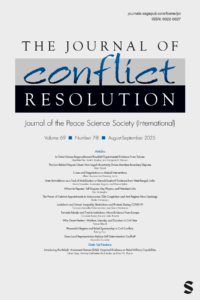August 14, 2025
Stephen Herzog
The following is an excerpt from the Journal of Conflict Resolution.
Decades of scholarship hold that great powers shore up global confidence during crises with strong demonstrations of resolve. A much smaller literature critiques these assumptions, suggesting that restraint may strengthen confidence. When and why do restraint or resolve reassure, and for whom? In light of Russia’s 2022 full-scale invasion of Ukraine, we appraise early U.S. attempts to reassure allies and partners using public opinion surveys in 24 countries on six continents. Our novel data, which cover rarely surveyed publics, illuminates conditions under which restraint or resolve reassure. We introduce theoretical mechanisms that predict individuals’ propensity to be reassured by resolve or restraint: prior beliefs about the use of force and geopolitical positioning. The results challenge dominant scholarly narratives. Respondents worldwide were reassured by restraint. Forgoing direct intervention in the Russo-Ukrainian War strengthened the U.S.-led order, successfully balancing NATO members’ interests with those of U.S. Indo-Pacific and Global South partners.
Continue reading at the Journal of Conflict Resolution.

